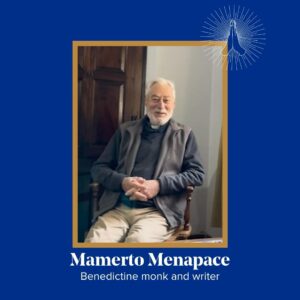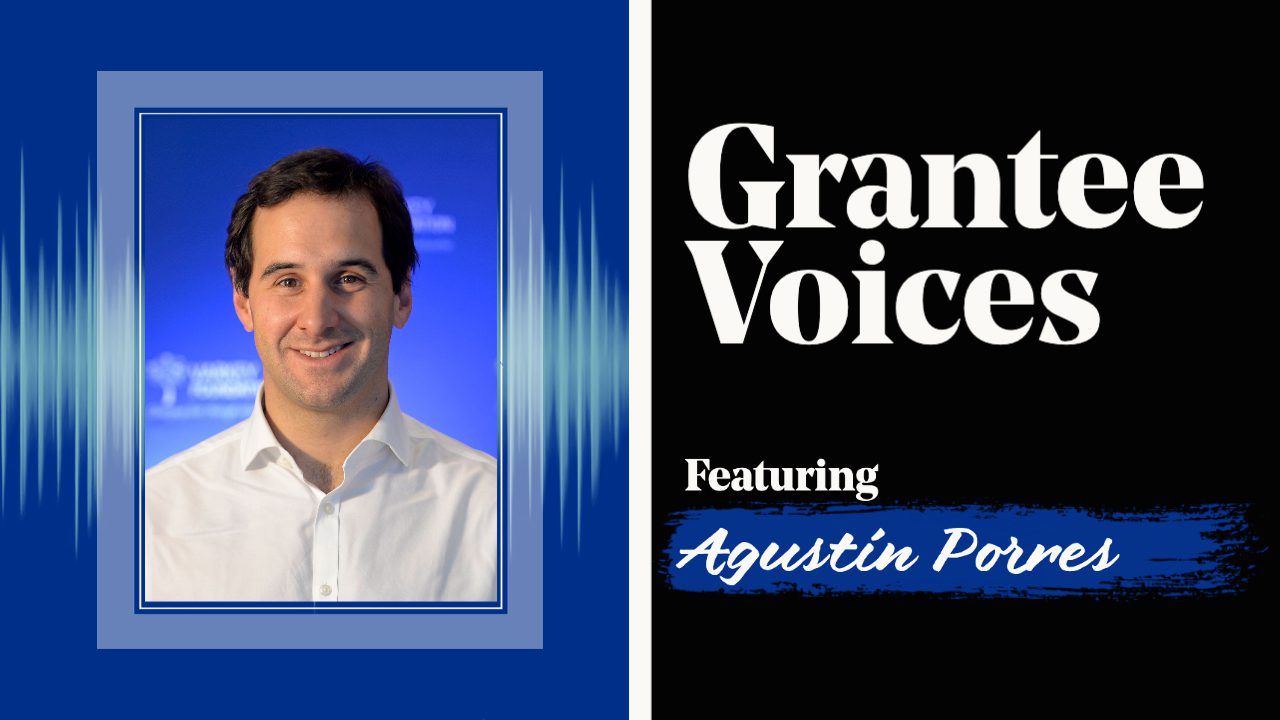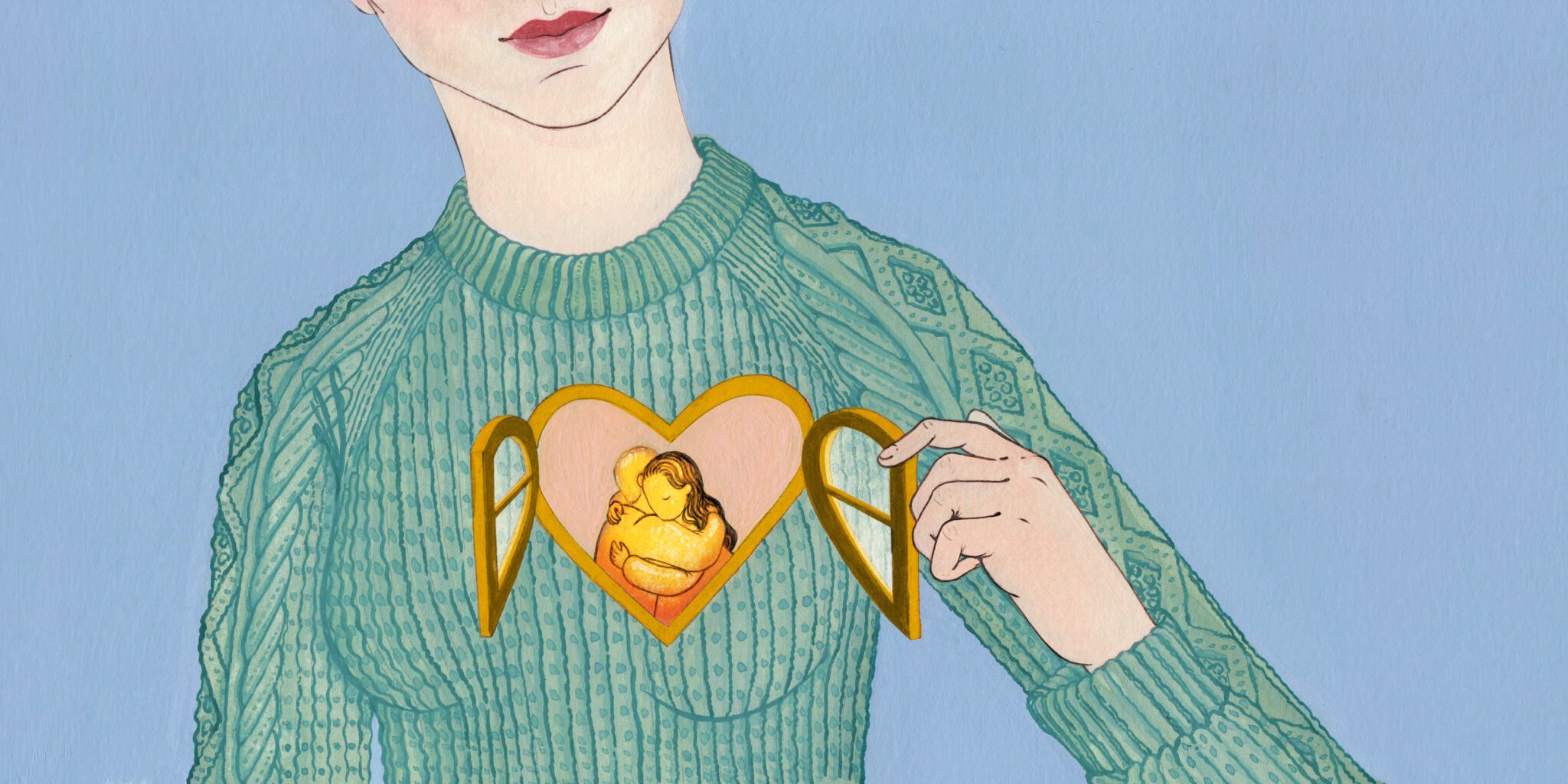Editor’s Note: Agustin Porres is a JTF grantee who has worked tirelessly to elevate and celebrate Benedictine education and high-quality teaching in Latin America and around the world. He recently had the opportunity to speak with Mamerto Menapace, an extraordinary teacher himself.
Mamerto Menapace lives in a Benedictine monastery in the Argentine countryside where he has been praying and reflecting for 70 years. I went to visit him and have a conversation about the perspectives he’s reached on human vocation, mission, and education.
At just ten years old, Menapace started his monastic life. He went on to study philosophy and theology, became a teacher, and later was chosen as Superior, Treasurer, Prior, and Abbot in his order. In the region where he lives, he is recognized for his deep spirituality, his knowledge of nature, and his profound understanding of human nature. His written work now comprises more than 50 titles.
Porres: Who was a great teacher for you, and what were they like?
Menapace: I always remember a teacher who emphasized the concept of maieutics, a Greek term linked to childbirth, signifying the act of giving birth to truth in the heart of the listener. This teacher conveyed that education was not merely about filling pots but igniting torches. While it’s a fairly well-known phrase, I deeply appreciated the imagery it conveyed.
I also find the idea intriguing that in education, qualities already exist like fertility in the soil. It’s then a matter of how you help it flourish. For this, a true teacher must have two acts of deep faith: first, believing in the fertility of the soil they are about to cultivate, and second, believing in the fertility of the seed they are about to plant. We have to believe in the youth, not begin by criticizing them.
There have been great teachers in my life. However, in my first year at a certain school, I failed Spanish. Later, I wrote 52 books. In the second year, I failed geography. Then, for 27 years, I traveled through different countries of the world without getting lost. And in the third year, I failed accounting. Later, I spent years being responsible for the monastery’s finances.
But to get to the point, I believe that a teacher should strive to shape individuals.
I believe students will not remember them for the content they taught but for what they allowed them to become. In essence, it’s about the core of maieutics, bringing to the surface what resides internally.
How does a teacher help students to discover what they can be?
I believe that in our lives, we have two different things: vocation, which is not chosen but intrinsic, and mission, which is what we are meant to do in life for others, what we have to offer. These are distinct things. Vocation is given to us by God when we are named in our mother’s womb, and it is the way to fulfill ourselves. It can be discovered or not, and once discovered, it can be accepted or not. And once accepted, it can be lived out well or poorly. Today, education is more focused on the mission, but we don’t always pay attention to the vocation that each person carries within.
If you ask me how to help discover vocation as a teacher, I would say to have a discerning eye: the teacher who stands in front of a group of people has to – I’m not sure if I should say “discover” but rather “respect” the mystery within each of them.
I believe that, in terms of information and content, we have plenty; we are in a kind of giant supermarket in which we can choose. But what do I need from that supermarket? The educator has to engage in a process of Socratic questioning, that is, to help bring out from within the person who they seek to be, to “save” the poet, the scientist inside them instead of overloading them with a bunch of things.
Going to a specific case, what are the ways to teach honesty, for example?
Being honest and knowing how to acknowledge a mistake. That’s what the Lord did to some extent; He was very consistent with Himself. I believe that, even though the disciples didn’t understand it at that moment, after He left, they began to discover and imitate Him. But it took quite some time. So, teaching honesty is more about inspiring values than just giving rules or principles.
What virtues are the most essential to develop in our students?
Firstly, we need to discover in which direction the mule is heading. I believe that teachers must be able to accept the differences among the individuals they will have in front of them and believe in their future. Italians have a beautiful phrase that says, “se sono rose, fioriranno,” which means “if they are roses, they will bloom.” This implies having faith in the student and also acknowledging that roses are different from carnations.
Today in education, there is a lot of talk about creativity. How can we nurture it when we do the same things every day?
I get the impression that a lemon only releases its juice when you squeeze it. I believe that being very consistent, very faithful to what you are doing, offers you great freedom for other things. In other words, when you don’t know what you’re doing it for, it’s difficult to be at service. So, I would say, be honest with yourself, have a clear understanding of what you are doing, and then give yourself to others.
How do you maintain hope in a world they tell us is falling apart?
By striving to employ the talents one possesses in the service of others, recognizing that one cannot single-handedly solve the world’s problems. It is said that we don’t hold the world’s solution in our hands, but we do have our hands to solve the world’s problems. When the God of history comes, He will look at our hands.
Moreover, God has not forgotten us. The Lord also didn’t solve many of the problems of his time, such as the issue of Roman domination, for example.
The last question: What place does forgiveness hold for you?
I believe that there is often great confusion because forgiveness is confused with forgetting. Forgetting is a lie. For example, if I accidentally step on your ingrown toenail right now, you will scream, and I will say, “forgive me.” You will forgive me, but your foot will still hurt, and when you take off your shoe tonight, you will remember me and my mother. (laughs)
Forgiveness is an act of will, and forgetting is a memory issue. To forget is to deny what has happened, and I believe we should not deny what has happened but rather approach it differently.
I think forgiveness is a decision not to repay evil with evil. When you’ve messed up with someone, and then you discover they still care about you, it heals you.
The best revenge is to do good to those who have offended us, and when those we have offended show us kindness, it's very powerful.
When you’ve messed up with someone, and then you discover they still care about you, it heals you.



